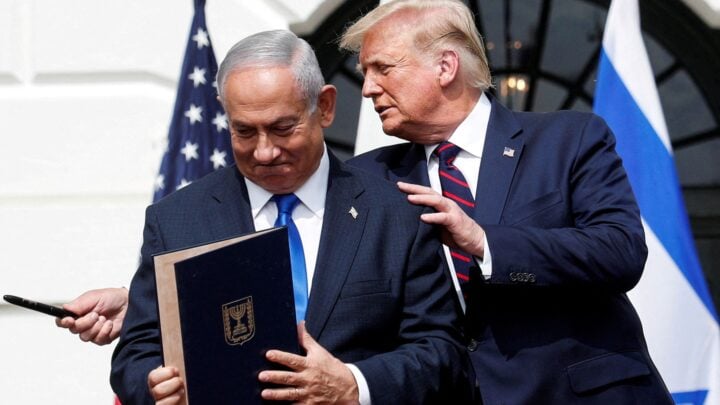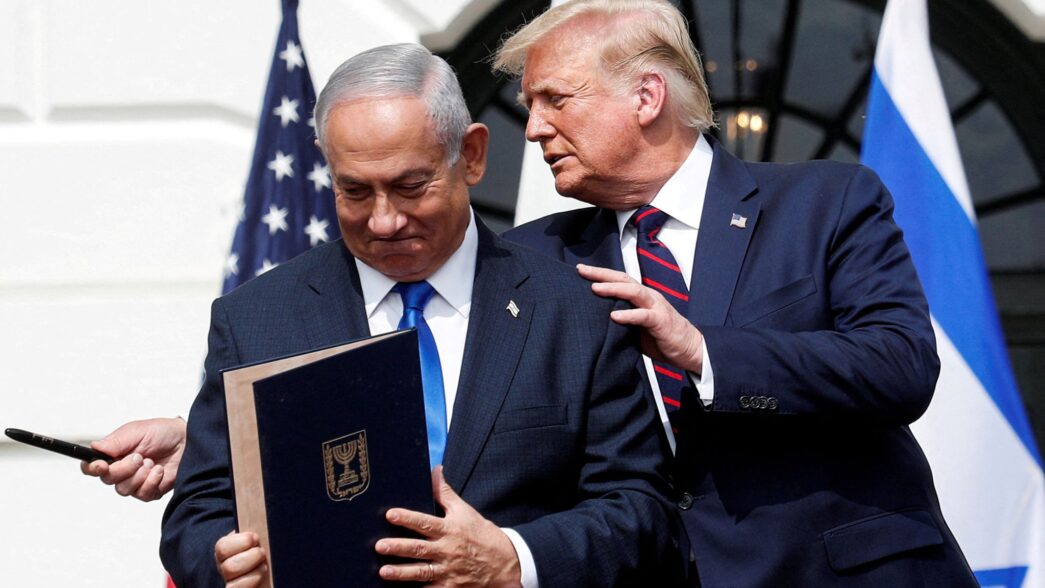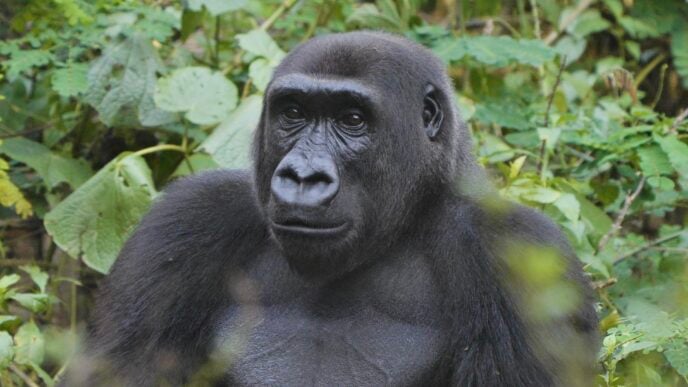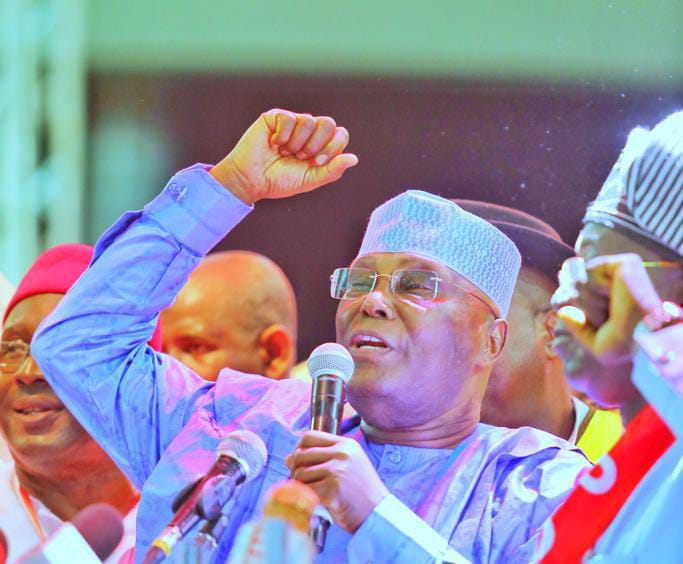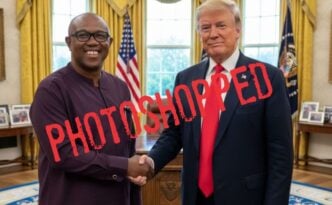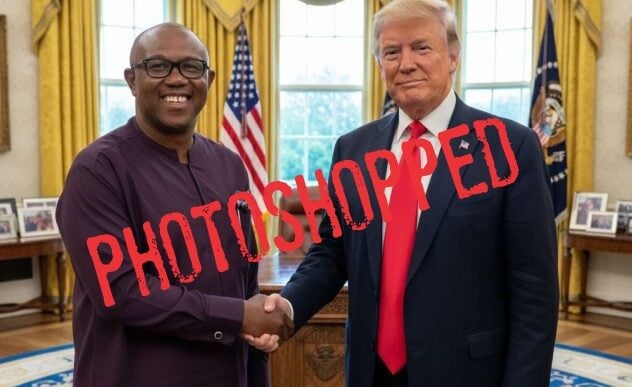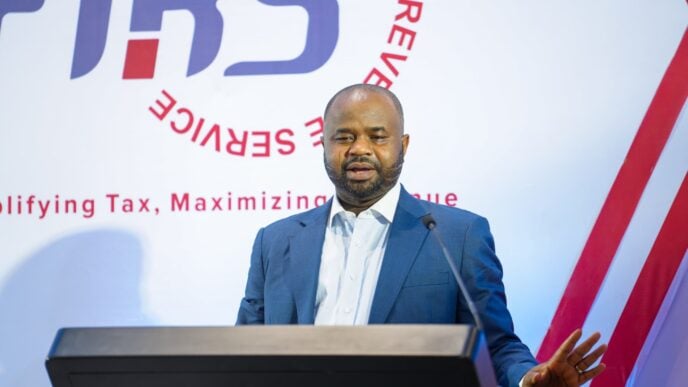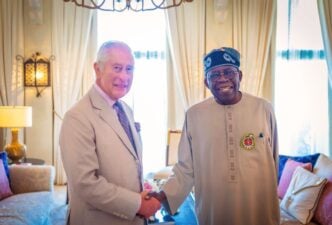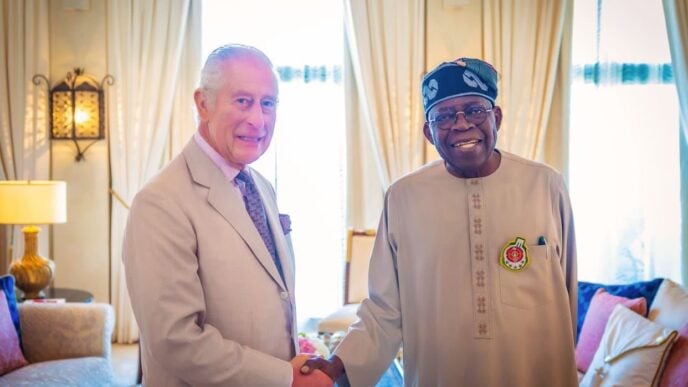Israeli PM Benjamin Netanyahu (left) and Donald Trump | File photo: Sky News
Much of the highlight of the 80th United Nations General Assembly (UNGA) has been the formal recognition of a Palestinian state by key Western nations and United States allies — the United Kingdom, Canada and Australia — pushing Israel into further isolation.
Over 145 of the UN’s 193-member states had previously recognised a Palestinian state. However, the recent addition of the UK and a handful of others can be tantamount to a shot in the arm for the West Asian nation.
The announcements reflect growing frustrations with Israel’s conduct of the war against Hamas, which officials say has killed over 60,000 Palestinians and left millions starving and displaced.
It also adds another layer to the prospect of a two-state solution to the perennial Israeli-Palestinian conflict.
Advertisement
TheCable had explained the history of the tension between both nations here.
However, there are important questions to ponder. Was Palestine not a state? Why does its recognition matter? Who leads the implementation of this new recognition?
WHAT MAKES A STATE?
Advertisement
In 1993, a handful of states that emerged from former colonies convened in Montevideo, Uruguay’s capital city, to set agreed standards for international recognition of their self-governed status.
The outcome of that meeting became known as the Montevideo Convention on the Rights and Duties of States — which is enshrined in international law.
To be formally recognised as a state, the convention mandates four criteria.
A state must have a permanent population; a defined territory with clearly recognised geographical boundaries; a government that is an organised political authority exercising effective control and administration over the territory and population; and the capacity to enter into relations with other states, reflecting sovereignty.
Advertisement
Palestine can justifiably lay claim to two: a permanent population (although the war in Gaza has tampered with this) and the capacity to enter into international relations proven by cooperation between Mahmoud Abbas, president of the Palestinian national authority; the UN, and other world leaders.
However, the other two criteria are not so straightforward. There has been no agreed definition of what areas comprise Palestine.
Palestinians have laid claim to three parts: East Jerusalem, the West Bank and the Gaza Strip. All were conquered by Israel during the 1967 six-day war. Currently, Israel exercises full control over East Jerusalem; controls major settlements in the West Bank — though deemed illegal by international law — and has flattened most of Gaza.
The most challenging situation for Palestine is the establishment of a functional government. Palestinians in Gaza and the West Bank have been ruled by two rival governments: Hamas in Gaza and the internationally recognised Palestinian authority in the West Bank.
Advertisement
The last presidential and parliamentary elections in the contested state was in 2006.
RECOGNITION MAY BE INSUFFICIENT
Advertisement
Words are one thing, actions quite another. International relations experts agree that compliance and enforcement have always been obstacles in allowing the law to prevail.
Israel remains strongly opposed to the growing support for a sovereign Palestine and has threatened to retaliate through formal annexation of parts or all of the West Bank.
Advertisement
Meanwhile, the US, Israel’s strongest ally, has also registered a strong displeasure about the prospects of a Palestinian state, doubling down with its refusal to grant Abbas visa to address world leaders at the ongoing UNGA.
President Donald Trump has also relayed ideas of “a long-term ownership position” of Gaza and has encouraged a “relocation” of Palestinians from the strip. This further deflates one of the only two criteria of state recognition which Palestine held onto — a permanent population.
Advertisement
These factors leave Palestine’s future unclear but they also raise questions about what should be prioritised — championing statehood or ending the war.
ALTERATIONS IN RELATIONS
Yusuf Bako, a geopolitical expert and lecturer of international relations at Baze University, told TheCable that the increasing recognition of Palestine as a state by US allies could reshape relations between Washington and Israel.
“But not how we think,” he clarified.
“It ultimately begins with the American people and growing discontent with the US-Israel relationship and what it means.
“The growing distrust of Israel, Israeli lobbying and the meddling of AIPAC in US politics has fundamentally altered the US taxpayers’ perception of what the US-Israel relationship is and what it should look like going forward.
“This is an evolving situation which neither the US nor Israeli governments have a grip on.
“In terms of the recognition of Palestinian statehood and how this affects both the US and Israel’s relations with the world, it is very conceivable to posit that cracks are forming with the Western alliance, notably amongst the 5 Eyes — Australia, Canada, New Zealand, the United Kingdom and the United States.
“Chief among the 5 Eyes members to recognise Palestinian Statehood are Australia, Canada and the UK, with New Zealand likely to follow.
“This schism also breaks into the G7, causing distrust in US foreign policy and the Western European–Anglo–Saxon hegemony led by the US.”
The US has termed the raft of recognitions as “reckless” and a “performative gesture”, stating that there will be “no establishment of a Palestinian State”.
Given the US’ formative source, its DNA being European, Bako said the country will have to consider its relationship with Israel and Europe in determining which is most important to it.
